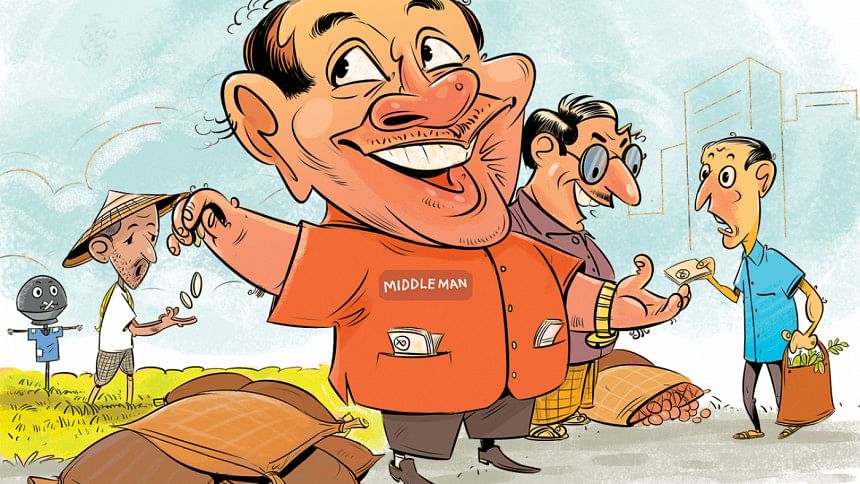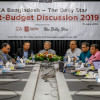Gloom of growers not going away

Gani Mia is a farmer with no land of his own. He grows paddy, jute and other crops in others' fields.
His story, though fictitious, is in school textbooks and etched in the minds of many. It stands true for a large number of the country's farmers, especially the marginal ones.
And right now, these people are going through a hard time due to low prices of paddy this year.
However, the proposed national budget for fiscal year 2019-20, placed in parliament yesterday, does not have anything drastic to bail them out of the situation, according to experts.
While presenting the proposed budget, the finance minister said, "The sale price of chemical fertilisers will remain unchanged in the next fiscal year."
Asked, Dr M Asaduzzaman, former director of Bangladesh Institute of Development Studies (BIDS), said, "It would have been a good news had the prices been reduced."
The proposed budget also said the government has concentrated on mechanisation of harvesting following the much talked-about high labour wages for harvest during Boro season.
The government will provide subsidies to farmers to buy those machines, it said.
However, Prof Atiur Rahman, former governor of Bangladesh Bank, said although the initiative was good, small farmers, who are already struggling to make ends meet, would not be able to buy the agricultural tools.
The proposed budget added that the government will continue providing all sorts of incentives to farmers. The support includes agricultural subsidies for those with farmer's cards and subsidies for fertilisers and seeds, as well as rebate on electricity bills for using irrigation pumps.
Currently, the number of such cardholders is nearly 2.08 crore, it said.
Talking about the issue, Prof Atiur said the budget has some visions for farmers. But implementation of those initiatives would be a problem as indicated by "past records".
"We have seen misuse of such government incentives in the past. It would be good for farmers if the incentives are not abused," he said.
He said many of the incentives do not even reach the marginal farmers, including the landless ones. "Also, they don't get any loan from banks," he said.
The professor said the government could have announced incentives for those who use and produce organic fertilisers, as those are environment friendly.
The proposed budget says there will be a 20 percent incentive on exporting rice.
The move had already been announced a few days ago. It came amid an outcry over falling prices of paddy and rice in the domestic market, resulting from good harvest of the Boro crop and higher public and private stock of imported rice.
Dr M Asaduzzaman said the government's initiative of providing 20 percent incentives on rice export would benefit mill owners, not the farmers. "So it has become a business-friendly budget, not farmer-friendly," he said.
"And we will have the impact of the present crisis in the next Aman and Boro seasons. Many farmers, who did not get fair prices, might not feel encouraged to produce paddy anymore," he said.
He also expressed doubt whether the policymakers knew the ground reality.
In the budget proposal, the government has allocated Tk 66,234 crore for the agriculture and rural development sector, which is 21.5 percent of the total size of the budget.
Nearly, 40.62 percent of total labour force is employed in the agricultural sector, the budget proposal said.

 For all latest news, follow The Daily Star's Google News channel.
For all latest news, follow The Daily Star's Google News channel. 








Comments